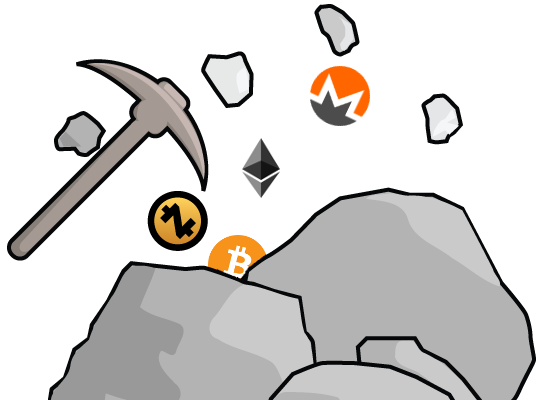The Gold Rush: Why Cryptocurrency Mining Is So Profitable in Georgia
Today, it’s clear that cryptocurrencies have taken the world by storm. Digital money allows people to invest their fiat funds, pay for goods and services online, and confidently earn from long-term investments. Interest in cryptocurrencies is fueled by their unprecedented price growth, which amazes skeptics and delights those who have invested in altcoins or Bitcoin.
Currently, Bitcoin is the most popular cryptocurrency, first appearing in 2009 and already being used as a full-fledged payment method by 2010. Some may be surprised to learn that in Georgia, not only professional miners but even political parties are involved in cryptocurrency mining.
Georgia’s Place in the Global Mining Industry
According to the “Global Cryptocurrency Benchmarking Study” conducted by the Cambridge Centre for Alternative Finance, Georgia ranks second in the world for energy consumption dedicated to cryptocurrency mining (see chart). China is in first place (using 111 megawatts for mining), followed by Georgia, then the USA and Canada.
There are currently between 2.9 and 5.8 million active cryptocurrency users, most of whom live in North America and Europe. The study includes data from 150 cryptocurrency companies and experts across 38 countries.
Meanwhile, China’s central bank has instructed the National Internet Finance Association (NIFA) to request that authorities regulate the volume of cryptocurrency mining, citing energy conservation as the main reason. Additionally, Chinese authorities have already banned ICOs, citing high financial risks, and have shut down several domestic cryptocurrency exchanges. Because of these restrictions, Georgia may soon take the top spot in global mining.
Political Parties and Mining Initiatives
The opposition party “Girchi” (which translates to “buds”) is known for its uncompromising fight for marijuana legalization. Their plans have become even more radical—they decided to start mining cryptocurrency and use the proceeds to buy up state assets and distribute them to the people.
“For Girchi, this is the most important project because by managing it, they are tackling two tasks at once: returning public assets appropriated by the state and neutralizing the levers of state monetary policy,” the party stated. Previously, party representatives asked their supporters to help with mining by keeping the party’s web page open in a separate window, allowing special code to mine cryptocurrency for the party.
Why Is Mining So Profitable in Georgia?
Roman Gotsiridze, a member of the Georgian parliament, claims that powerful mining servers are usually located in cold countries like Iceland, Norway, and Canada, because cooling costs are much lower. “So why have such major players ended up in hot Tbilisi? Because maintenance is cheaper,” he wrote on his FacebookFacebook launched an official Tor mirror in 2014, becoming the first major tech company to provide direct access through onion routing. The mirror allows users to bypass censorship, secure their connections, and avoid phishing risks while using the platform. This step also underscored Facebook’s recognition of free expression and inspired other outlets like the BBC and ProPublica to create their own Tor versions. More page.
Georgia’s mining boom is fueled by nearly free land, cheap electricity, low labor costs, and almost zero taxes. Gotsiridze emphasizes that more privileges could be offered in the future if needed.
Legal and Regulatory Environment
Current legislation does not regulate issues related to the circulation and exchange of cryptocurrencies. At present, mining is not considered an entrepreneurial activity and is therefore not taxed. Georgian parliament member Gela Samkharadze said, “Cryptocurrencies have become popular in Georgia recently, and we don’t have any regulators at the moment. I have no information on whether such regulators are planned for the future.”
Vakhtang Gogokhia, founder of Georgia’s first cryptocurrency, explains that cryptocurrency is not currently a legal payment method in Georgia and is not regulated by the National Bank for this reason. “Paying in Bitcoin is the same as bartering. For example, it’s like buying a product with gold,” he said.
Roman believes that large-scale miners should be taxed. He noted, “This sector can be regulated with reasonable electricity prices. But our citizens are so poor that such prices will always be close to cost.”
Risks and Warnings
Meanwhile, the National Bank of Georgia warns about the risks associated with using cryptocurrencies, which have become increasingly popular worldwide. “Virtual currency is not a legal means of payment in Georgia. Its circulation is not regulated by law or by the National Bank,” the statement says.
Cryptocurrency transactions are carried out through exchange services and digital wallets opened in various countries, and their legal status is sometimes unconfirmed. Because of this, people using such platforms may face financial and legal risks. They may also become targets for cyberattacks. The anonymity of cryptocurrencies makes them attractive for illegal activities, including money laundering. The National Bank of Georgia urges citizens to exercise caution when using cryptocurrencies and to consider these risks.



